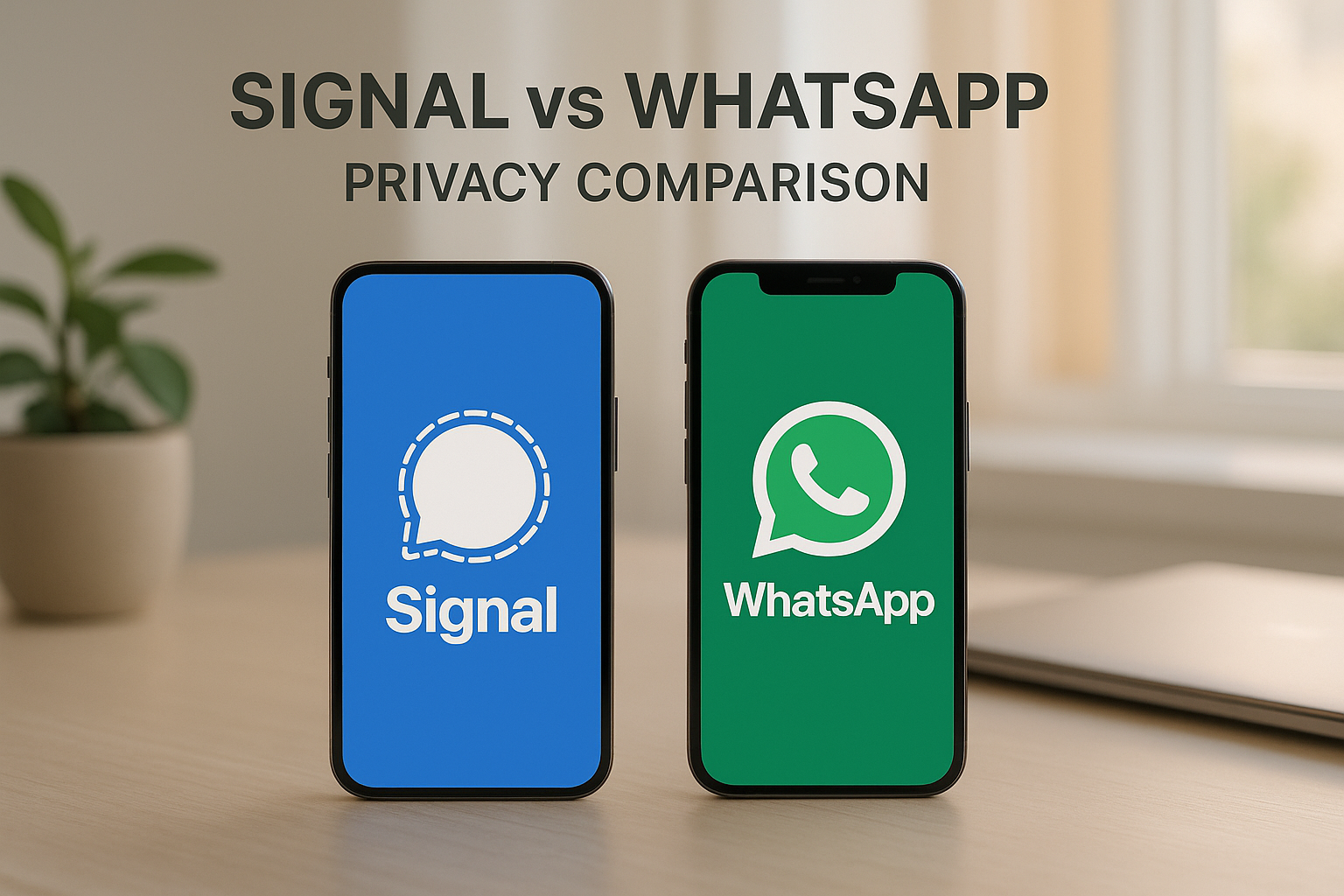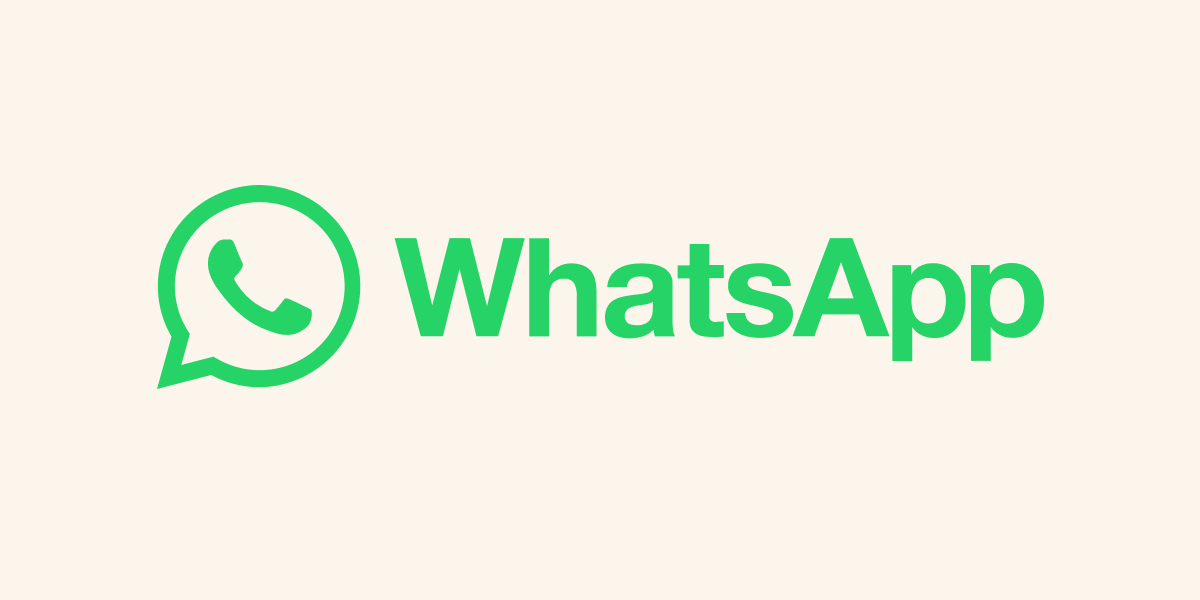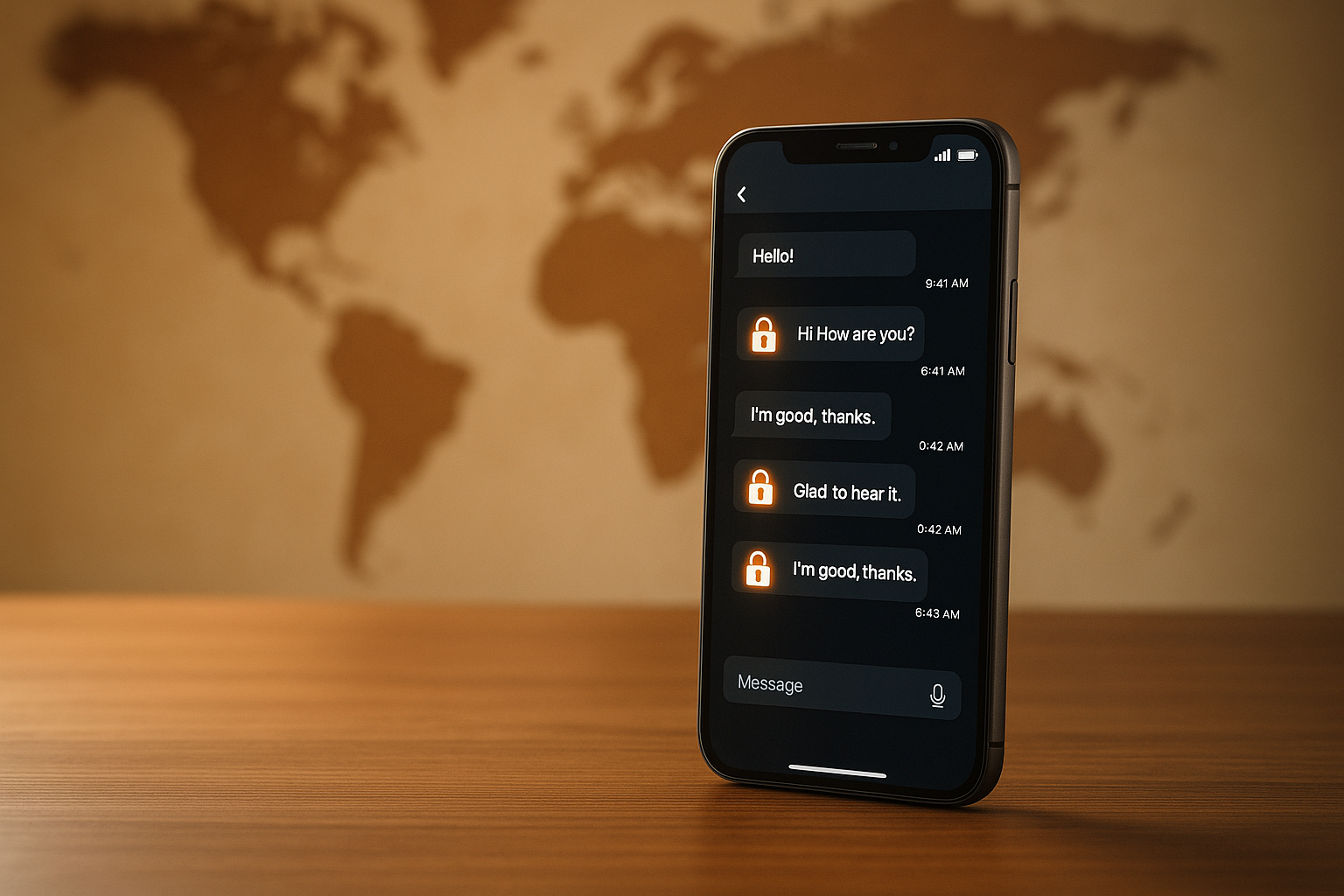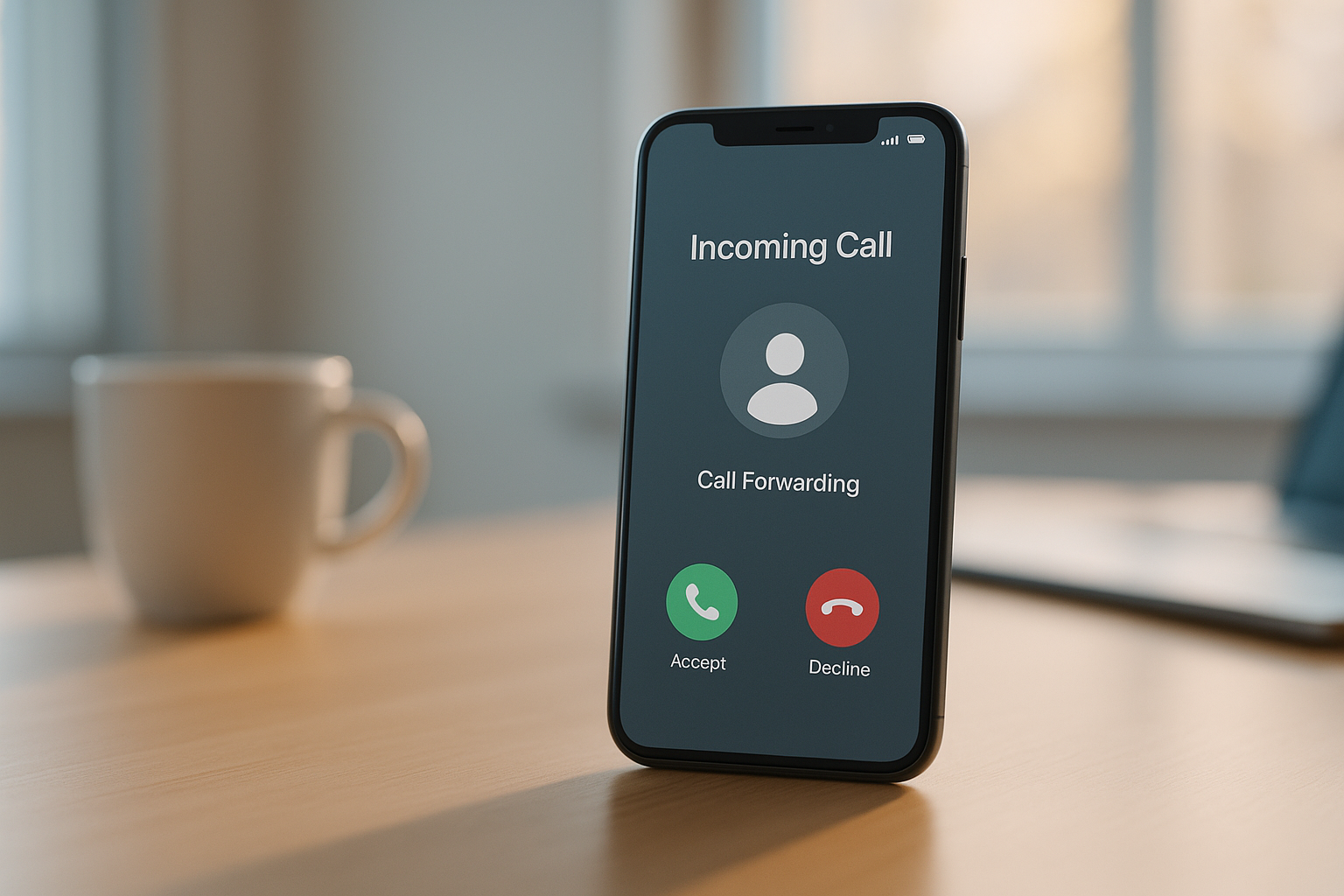Signal vs WhatsApp: Complete Privacy Comparison Guide 2025
Signal and WhatsApp both use strong encryption, but they differ significantly in how they handle your data. If privacy is your top concern, Signal is the better choice. Here's why:
- Signal collects minimal data - just your phone number - and protects metadata with features like "Sealed Sender." It's open-source, so anyone can verify its security.
- WhatsApp, owned by Meta, collects more data, including your device details, IP address, and usage patterns. Metadata like who you talk to and when is also accessible and often shared with law enforcement.
Quick Comparison
| Feature | Signal | |
|---|---|---|
| Data Collection | Phone number only | Extensive (e.g., IP, usage) |
| Metadata Protection | Strong ("Sealed Sender") | Limited |
| Open Source | Yes | No |
| Third-Party Sharing | None | Shares with Meta |
| Law Enforcement Requests Fulfilled | Minimal data available | 78% compliance (U.S.) |
Bottom Line: Signal prioritizes privacy with minimal data collection and transparency. WhatsApp, while secure in message content, gathers more data and integrates with Meta's ecosystem.
Encryption Methods: How Safe Are Your Messages?
The way messaging apps handle encryption can significantly impact your privacy. Understanding these differences can help you make an informed choice for secure communication.
End-to-End Encryption Standards
Both Signal and WhatsApp rely on the Signal Protocol, a widely trusted system designed to protect your data. This protocol generates unique encryption keys for each conversation. When you send a message, it's encrypted with a key that only the recipient's device can use to decrypt it. To strengthen this system, both apps implement Forward Secrecy, which assigns a unique encryption key to every message. This means that even if one message is compromised, the rest of your communication history remains secure.
Will Cathcart, Head of WhatsApp, highlighted this shared foundation:
"To accomplish this, WhatsApp uses the same security protocol as Signal."
What Gets Encrypted
Both apps encrypt a wide range of communication types, but they differ in how they handle metadata and other details.
- Signal: Encrypts everything - chats, group messages, voice and video calls, media files, and more. Each message uses a distinct key, ensuring robust protection for all forms of communication.
- WhatsApp: Offers end-to-end encryption for messages, photos, videos, voice notes, documents, live locations, status updates, and calls. This ensures that your content stays private and inaccessible to unauthorized parties.
Where the two differ is metadata protection. Signal uses a feature called "Sealed Sender", which hides sender information, minimizing metadata exposure. WhatsApp, on the other hand, collects more metadata, such as usage patterns and activity logs, even though your message content remains encrypted.
What This Means for U.S. Users
The differences in encryption and metadata handling have real-world implications for privacy, particularly for U.S. users navigating strict data regulations and frequent law enforcement requests. Both apps provide strong defenses against hackers, but their approaches to data collection vary.
- Signal: Only collects your phone number. Even if law enforcement requests data, there's little information available to share. This makes it a strong choice for privacy-conscious users.
- WhatsApp: While it cannot access your encrypted messages, it does collect metadata. In 2024, Meta reported complying with over 78% of U.S. law enforcement data requests involving WhatsApp. This means metadata, such as who you communicate with and when, could potentially be shared.
Another key factor for privacy is open-source transparency. Signal's code is publicly available, allowing independent experts to verify its encryption methods. This transparency ensures that vulnerabilities can be quickly identified and fixed. WhatsApp, however, uses proprietary encryption, meaning users must trust Meta's claims without external verification.
| Encryption Feature | Signal | |
|---|---|---|
| End-to-end encryption | Yes | Yes |
| Forward Secrecy | Yes | Yes |
| Metadata protection | Strong ("Sealed Sender") | Limited |
| Open-source verification | Yes | No |
| Message content access | None | None |
These differences highlight the varying levels of privacy and transparency offered by each app, setting the stage for deeper discussions on data collection practices and user protections.
Data Collection and Metadata Handling
When comparing Signal and WhatsApp, their approaches to data collection and metadata handling reveal stark differences in how they prioritize user privacy. The type and amount of information they collect, as well as how they protect metadata, play a critical role in shaping their privacy profiles.
What Information Each App Collects
Signal keeps things simple - it only requires your phone number to register and doesn't gather any additional data.
WhatsApp, on the other hand, collects a wide range of information, including your device details, IP address, usage patterns, and multiple unique identifiers. This data is not just collected; it's also shared with Meta and other third parties. Meredith Whittaker, President of Signal, highlights this issue:
"WhatsApp collects and shares large amounts of private information that is not encrypted, like your profile picture, your location, your contacts, when you send a message, when you stop, who's in your group chats, and so on."
Signal's privacy policy, in contrast, explicitly states that it does not sell, rent, or monetize user data in any way.
How Metadata Is Protected
While both apps encrypt the actual content of messages, their handling of metadata is where the differences become clear. WhatsApp offers limited protection for metadata, leaving information like sender, recipient, and timestamps exposed. Signal addresses this vulnerability with its "Sealed Sender" feature, which helps conceal metadata and makes tracking much harder. These technical differences have a direct impact on user privacy, particularly in the United States.
Privacy Impact for U.S. Users
For U.S. users, WhatsApp's extensive metadata collection has significant implications. The app complies with over 78% of law enforcement data requests, providing access to metadata that can reveal communication patterns. In contrast, Signal's minimal data collection means there's little information to share, even under legal pressure.
Additionally, WhatsApp's massive user base - nearly 3 billion active users monthly - creates an environment where data can be linked across Meta's platforms. Signal, with its smaller and more independent user base of over 40 million, avoids such cross-platform data integration.
| Data Collection Aspect | Signal | |
|---|---|---|
| Registration Data | Phone number only | Phone number plus device details |
| Usage Tracking | None | Extensive tracking of usage patterns and identifiers |
| Metadata Protection | Strong ("Sealed Sender") | Limited |
| Data Sharing | Minimal | Shared with Meta and third parties |
| Law Enforcement | Minimal data available | 78% of requests fulfilled |
For those who value privacy - like journalists, activists, or anyone needing secure communication - Signal's approach to data collection and metadata protection offers a much stronger safeguard compared to WhatsApp's broader data-gathering practices.
Privacy Controls and User Settings
When it comes to protecting your personal data, encryption and data handling are just the beginning. Both Signal and WhatsApp equip U.S. users with privacy controls to safeguard their conversations, though the level of customization varies between the two. Knowing these differences can help you tailor your privacy settings to fit your needs.
Built-in Privacy Features
Both Signal and WhatsApp include disappearing messages to add an extra layer of privacy. Signal allows you to set custom timers ranging from seconds to weeks, while WhatsApp offers fixed options of 24 hours, 7 days, or 90 days.
Both apps also support screen locks, using your device's PIN, passphrase, or biometric authentication, and offer two-factor authentication for added security.
These features form the foundation of privacy, but advanced controls can take it a step further.
Advanced Privacy Controls
Signal stands out with additional options not available on WhatsApp. One notable feature is the call relay option, which masks your IP address during voice and video calls to protect your location privacy.
Signal also offers detailed notification management. You can decide whether notifications display the sender's name and message, the name only, or nothing at all. WhatsApp, by comparison, limits you to toggling notifications on or off and choosing whether to include message previews.
Both apps let you manage who can add you to groups and control the visibility of your profile details. You can restrict access to your profile photo, "last seen" status, and about information by setting them to be visible only to your contacts or hiding them entirely.
How to Improve Your Privacy Settings
Fine-tuning your privacy settings ensures you're making the most of the features each app provides. Here are some practical steps:
- Adjust your profile visibility settings: On both apps, you can set your profile photo, "last seen" status, and about information to "My Contacts" or "Nobody" to limit access to your personal details.
- Disable read receipts: If you want to keep your reading activity private, WhatsApp allows you to turn off read receipts. Signal does not offer this feature.
- Enable Signal's call relay: This feature conceals your IP address during calls, adding an extra layer of privacy.
- Regularly review your settings: Both apps occasionally update their features, so it's a good idea to check your privacy settings after updates to ensure they still align with your preferences.
For WhatsApp users, enabling encrypted backups is another important step. Store the backup password securely in a password manager to keep your data safe. Signal, on the other hand, does not support cloud backups, which means your data remains stored locally.
| Privacy Feature | Signal | |
|---|---|---|
| Disappearing Messages | Custom timers (seconds to weeks) | Fixed options (24 hours, 7 days, 90 days) |
| Screen Lock | Yes | Yes |
| Two-Factor Authentication | Yes | Yes |
| Call IP Protection | Yes (Call Relay) | No |
| Notification Customization | Full control over displayed info | Limited preview options |
| Read Receipts Control | Not available | Can be disabled |
Taking an active role in managing your privacy settings can help you stay in control of your data and conversations. Whether it's adjusting notification preferences, enabling encrypted backups, or tweaking profile visibility, these small steps can make a big difference in keeping your information secure.
Company Ownership and Policies
The way messaging apps handle your data is heavily influenced by their ownership and policies. Signal and WhatsApp operate under very different ownership models, which directly impact their approach to privacy and transparency.
Who Owns Each App and Why It Matters
WhatsApp is owned by Meta (formerly Facebook), a for-profit company that primarily earns revenue through advertising. This business model has sparked concerns about potential conflicts between user privacy and profit motives. For instance, in 2021, WhatsApp faced major backlash after updating its privacy policy to allow more data sharing with Meta. This incident underscored how corporate ownership can shape privacy policies.
On the other hand, Signal is managed by the non-profit Signal Foundation, which prioritizes privacy above all else. This non-profit structure influences its data practices, emphasizing transparency and accountability without the pressure of generating profits.
Transparency Reports and Open Source Code
Signal's open-source code is a standout feature, allowing security experts and privacy advocates to examine its encryption methods and verify its privacy claims. WhatsApp, however, uses proprietary code, meaning its security measures can't be independently verified. While both apps rely on the Signal protocol for end-to-end encryption, only Signal's open-source approach lets users confirm that its implementation aligns with its promises.
Both platforms release transparency reports that outline government requests for user data. However, what they can provide differs significantly. Signal's minimal data collection means it has very little to share with authorities, whereas WhatsApp collects extensive metadata that can be accessed by law enforcement.
These differences are particularly relevant in the context of U.S. regulatory challenges.
U.S. Regulations and Privacy Concerns
The lack of comprehensive federal privacy laws in the U.S. creates varying pressures for these platforms. Meta's ownership of WhatsApp raises eyebrows, given the company's history of data misuse and its extensive data-sharing practices.
U.S. law enforcement has been known to use WhatsApp metadata to build cases, leveraging the unencrypted information the app collects. As former NSA general counsel Stewart Baker once put it:
"Metadata absolutely tells you everything about somebody's life. If you have enough metadata, you don't really need content."
While WhatsApp has resisted some government demands for message traceability in certain countries, its metadata collection still provides authorities with substantial information. Meta CEO Mark Zuckerberg has defended the platform's encryption by stating:
"We don't see any of the content in WhatsApp"
However, this statement overlooks the extensive metadata collected outside of message content.
Another growing concern involves the use of data for AI. Meta's updated privacy policies allow the company to use user content to train AI models. Although users can object to this, Meta is not required to honor those objections. In contrast, Signal's non-profit model and limited data collection ensure that user data is neither used for AI training nor widely accessible to government agencies.
| Privacy Aspect | Signal | |
|---|---|---|
| Ownership Structure | Non-profit Signal Foundation | Meta (for-profit corporation) |
| Code Transparency | Open source, publicly auditable | Proprietary, closed source |
| Data Sharing | No third-party data sharing | Shares data with Meta companies |
| Government Data Requests | Minimal data available | Extensive metadata available |
| AI Training Data | No user data used for AI | Content may be used for Meta's AI |
The contrasting ownership models and policies of Signal and WhatsApp create vastly different privacy environments, especially for users in the U.S. These differences set the stage for a deeper dive into how each platform protects user privacy.
Privacy Comparison Table
The table below highlights key differences in how Signal and WhatsApp handle user privacy for U.S. users. It provides a side-by-side look at their practices, policies, and features, offering a clearer view of the privacy considerations for each platform.
| Privacy Feature | Signal | |
|---|---|---|
| Data Collection | Only requires a phone number for account creation | Collects device details, IP addresses, usage patterns, identifiers, location data, and cookies |
| Metadata Protection | Sealed Sender feature hides sender, recipient, and timing data | Tracks who you message, when, how often, and from where |
| Information Shared | Shares phone number, signup date, and last usage date | Shares profile picture, location, contacts, message timing, and group chat participants |
| Third-Party Data Sharing | Does not share data with third parties | Shares data with Meta companies and partners |
| Disappearing Messages | Offers custom timers with flexible options | Limited to 24 hours, 7 days, or 90 days |
| Encryption Verification | Open-source code enables independent audits | Uses proprietary encryption that cannot be independently verified |
| Call Privacy | Call relay feature hides IP addresses during calls | IP addresses are visible during calls |
| Notification Controls | Provides three options: name and message, name only, or neither | Basic on/off toggle with optional message preview |
| Screen Lock Options | Offers multiple time interval choices | Provides fewer time interval options |
| Revenue Model | Supported by grants and donations | Owned by Meta |
| Monthly Active Users | Over 40 million users | Over 2 billion users |
This comparison underscores the distinct approaches each platform takes toward user privacy, with Signal focusing on minimal data collection and transparency, while WhatsApp integrates with Meta's broader ecosystem.
Which App Is More Private?
For U.S. users, Signal offers better privacy than WhatsApp. The main distinction lies in data collection. WhatsApp gathers a significant amount of device data, while Signal only requires a phone number for registration. Additionally, Signal's "Sealed Sender" feature conceals metadata, making it harder for anyone to analyze communication patterns. These differences highlight the privacy gap between the two apps.
Another factor is Signal's non-profit structure, which removes the commercial pressure to monetize user data. In contrast, WhatsApp operates within Meta's advertising ecosystem, where data integration can serve targeted ads.
Signal also benefits from open-source transparency. Its encryption protocols are publicly available for security experts to examine and verify, ensuring accountability. On the other hand, WhatsApp uses proprietary encryption, which cannot be independently audited. This openness strengthens trust in Signal's privacy measures.
However, user base size is a practical consideration. With nearly 3 billion monthly active users, WhatsApp far surpasses Signal's 40+ million. This makes it easier to find contacts already using WhatsApp. If connecting with a larger network is important, you may need to balance privacy concerns with convenience.
For those in the U.S. who prioritize privacy above all else, Signal offers better protection against data collection, metadata tracking, and third-party sharing. Ultimately, the decision comes down to whether you value enhanced privacy or the ease of connecting with a broader user base.
FAQs
How does Signal offer better privacy protection than WhatsApp?
Signal prioritizes your privacy by adopting a minimal data collection approach and implementing advanced security measures. One standout feature is Sealed Sender, which ensures that even Signal itself cannot access your metadata, keeping your communication private. Moreover, Signal operates as a non-profit and uses open-source code, allowing anyone to review and confirm its security practices.
On the other hand, WhatsApp gathers metadata such as phone numbers, IP addresses, and user activity, which it shares with its parent company, Meta. Unlike WhatsApp, Signal stores almost no user data, making it the go-to option for anyone seeking secure and private communication.
How does the ownership of Signal and WhatsApp affect their privacy policies?
Who owns a messaging app can tell you a lot about its privacy stance. Signal is backed by the nonprofit Signal Foundation, an organization with a clear mission: to safeguard user privacy. Signal doesn't collect, share, or profit from your personal data. Plus, every message you send is protected with end-to-end encryption, meaning only you and the recipient can read it.
WhatsApp, on the other hand, operates under the umbrella of Meta (formerly Facebook), a for-profit company that has faced criticism over its data-sharing practices. WhatsApp does share some user data with Meta, often for advertising and other business purposes. This has sparked concerns about how secure and private your information really is. The ownership of these platforms reflects their very different priorities when it comes to handling user data.
What's the difference between open-source and proprietary encryption in messaging apps?
Open-source encryption offers a distinct advantage: it allows the public to examine and audit the code. This level of openness builds trust and ensures that any security flaws can be identified and addressed swiftly, thanks to contributions from a global community of developers and experts.
In contrast, proprietary encryption operates on private code controlled by a company. Users have to take the company's word regarding its security, as independent verification isn't possible. While proprietary systems can still be secure, the absence of external reviews increases the risk of unnoticed vulnerabilities. For individuals who prioritize privacy and security, open-source encryption often stands out as the more dependable choice because of its transparent and collaborative approach.





